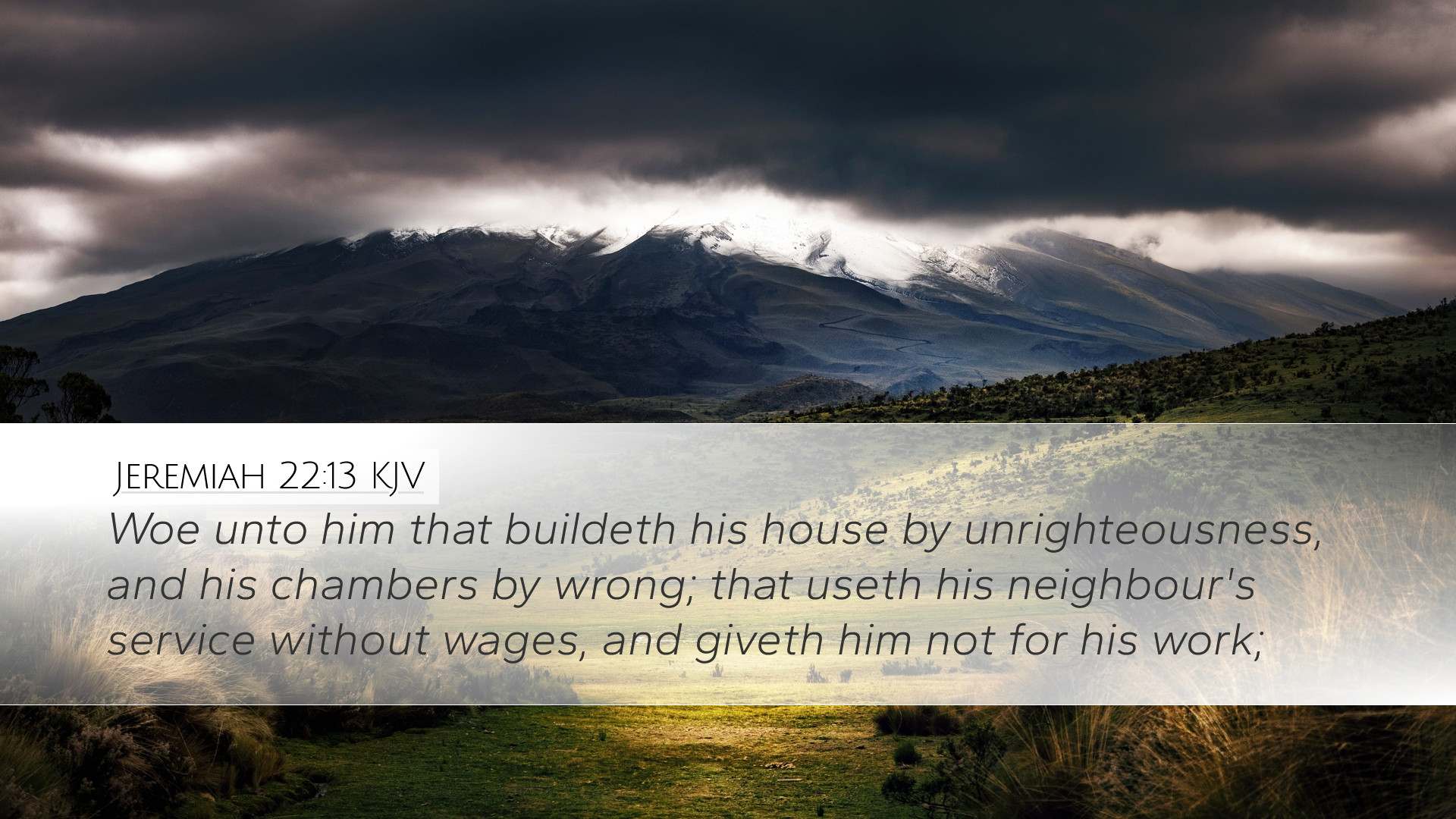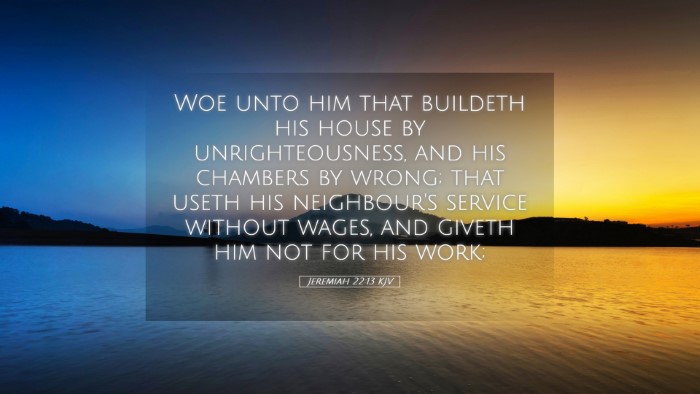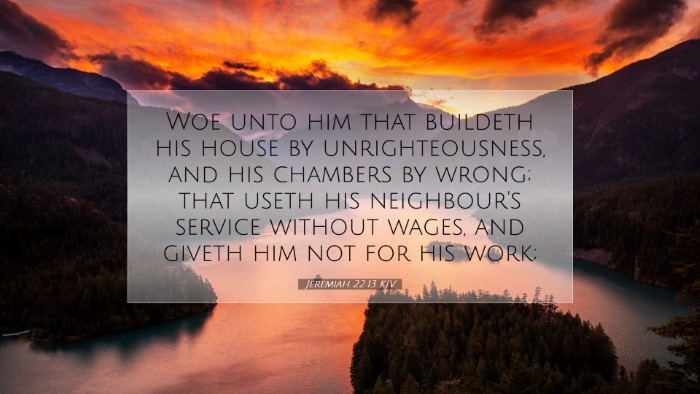Commentary on Jeremiah 22:13
Verse: "Woe unto him that buildeth his house by righteousness, and his chambers by wrong; that useth his neighbour's service without wages, and giveth him not for his work."
Introduction
This verse offers a poignant commentary on the moral and ethical frameworks guiding leadership and governance. It serves as a warning against the injustices that invalidate prosperity and righteousness. The juxtaposition of building a house by righteousness but chambers by wrong illustrates the contradiction often found in human character, especially within positions of power.
Contextual Background
Jeremiah, a prophet of God, is often regarded as the "weeping prophet" due to the anguish he expressed over the fate of Judah. Throughout his writings, he conveys the utter importance of sincerity in leadership and the dire consequences of dishonesty. This verse falls within a section that directly addresses the kings of Judah, particularly Jehoiakim, who exemplified the kind of corrupt leadership Jeremiah vehemently opposed.
Insights from Public Domain Commentaries
Matthew Henry's Commentary
Henry illuminates the destructive consequences of governance rooted in inequity. He emphasizes that true prosperity cannot be built upon the suffering and injustice of others. He states that those who exploit their neighbors deny not only their rights but also the divine order intended for social relationships. He further underscores that God will punish such transgressors, reminding leaders that accountability is inevitable.
Albert Barnes' Notes on the Bible
Barnes draws attention to the social contract implied in this text; he notes that laborits should rightfully receive compensation for their work. The phrase "useth his neighbour's service without wages" highlights a fundamental tenet of justice, that economic exploitation undermines societal stability. Barnes points out that building a house refers to establishing a lasting legacy, yet the legacy tainted by moral decay is bound to collapse.
Adam Clarke's Commentary
Clarke approaches the verse with a focus on the words "buildeth" and "by wrong." He interprets this as a metaphor for moral integrity. A house built upon righteousness represents a life framed by virtue, but when this is compromised by wrongs against others, such as unfair labor practices, the structure is weakened. Clarke warns of the fleeting nature of attainment gained through improper means, asserting that such a life lacks the foundation needed to endure trials.
Theological Themes
- Justice and Righteousness: The key theme of this verse is the divine expectation of justice. The exploitation of workers is an affront to God's character and a violation of His commandments.
- The Nature of True Prosperity: Prosperity founded upon wickedness is inherently unstable. True blessings from God are reserved for those who uphold righteousness in their dealings with one another.
- Accountability of Leadership: Leaders are held to a higher standard due to their influence. Their decisions resonate through society, making faithfulness to God's laws not just desirable but obligatory.
Modern Application
In contemporary society, the message of Jeremiah 22:13 remains remarkably relevant. It calls upon leaders in all spheres—politics, business, and local communities—to examine ethical practices and ensure that justice prevails. The implication is clear: financial gain obtained through oppression and exploitation stands inconsistent with the character of God and the ethical framework of Christianity.
Furthermore, this verse offers a grave reminder of the fleeting nature of success acquired through injustice. Scholars and pastors alike must integrate these reflections into their teachings, promoting a commitment to transparent, fair, and equitable practices within their communities.
Conclusion
In unpacking Jeremiah 22:13, we unveil layers of meaning that challenge both leaders and their constituents. With references from well-regarded commentaries, a shared understanding emerges; integrity, justice, and righteousness are non-negotiable tenets in our collective pursuit of a society that reflects God’s love and justice. As we study this passage, may we find renewed commitment to building our lives, homes, and communities on the solid ground of righteousness, avoiding the snares of exploitation and deceit.


